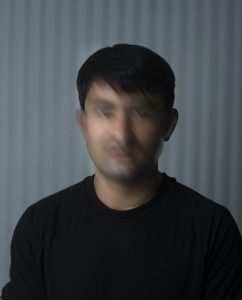Last man out – the plumber who closed up Australia’s embassy in Kabul
‘Najaf’ was the last man to leave the Australian embassy in Kabul when it closed in late May this year.
As the building’s plumber and handyman, it was his job to lock the doors after all of the diplomatic staff had departed.
His role with the Australians put him on a hit list when the Taliban finally took control of the Afghan capital in August.
But the re-emergence of the Taliban and the loss of his job are not the first difficulties Najaf has faced or witnessed during his country’s decades of interminable strife and conflict.
 “I was the Australian embassy plumber in Kabul. It was a good job but in all of my 29 years of life in Afghanistan, I have never had many happy memories,” Najaf told iMPACT Magazine this month.
“I was the Australian embassy plumber in Kabul. It was a good job but in all of my 29 years of life in Afghanistan, I have never had many happy memories,” Najaf told iMPACT Magazine this month.
As a member of the Hazara ethic minority, Najaf and his family have always been potential targets for Sunni extremist groups in Afghanistan.
“Because of terrorist groups like the Taliban and Daesh carrying out attacks against us, I have lost family members,” he said.
“I have lost two uncle and a cousin, a maternal; uncle my father-in-law and mother-in-law,” Najaf said.
“Two uncles went missing recently and were found a mass grave.”
In 2017 Afghan police discovered a mass grave containing the bodies of at least 36 victims of a recent militant attack on a village in the Mazar-I-Sharif region.
“The last time the Taliban were in power in the 1990s my wife’s parents disappeared. There has been no news of them to this day.
“My father-in-law was working with the government and their three daughters were orphaned. They were left with another uncle who was later injured in a suicide attack in 2017 – he had seven kids of his own,” Najaf said.
While grateful and relieved to be in Australia, Najaf said he was worried about family members still in Afghanistan.
“I am happy to be in Australia, at least my wife and kids are safe. But I am very worried about my extended family still in Kabul,” Najaf said.
“I am from a village in Wardak province and there are Taliban who came from the same village. I worry they will look for my family.
“We are Hazaras, and Shia, and we are different from the Taliban – we are under constant attack from them,” he said.
Najaf says he became a plumber at the Australian embassy nine years ago.
“I was the last one out of the embassy when it closed. I locked the door behind me,” he said.
“When it closed I went to work and US embassy but only for six weeks before it closed too in June as the Taliban approached.
“At this point I was very worried the situation was bad and getting worse,” he said.
Najaf’s first application for a visa to come to Australia was rejected.
“I applied the first time and was rejected. But the deputy ambassador contacted the ministry and I got a visa,” he said.
But it was then that Nasir’s real challenges began in getting himself, his wife and two kids to safety.
“It was very surprising how quickly the Taliban took over Kabul. I stayed in my house for two days afraid to go out,” Najaf said.
“There was a police station in my street which became a Taliban checkpoint. If they had found out who I was, I would have been taken away.
“One morning at 7am, I received an email telling us to come to the airport to be evacuated.
“But the situation was very bad. There was heavy gunfire which upset my kids and made them cry. People were throwing smoke grenades which injured my wife slightly.
“One of my brothers was working for TV channel and the Taliban came to his door. He had to flee and go into hiding. Only our uncles know his location,” he said.
Najaf says he wants to qualify as a plumber in Australia and resume his career. But he says he will also work to get his endangered family members out of Afghanistan.
“We are grateful to Australia for giving us the chance of a new life here and my kids will benefit from all the opportunities here,” he said.
“But I fear for my family members and I want to help them to get out of Afghanistan,” Najaf said.
*Najaf’s name has been changed to protect family members still in Afghanistan












